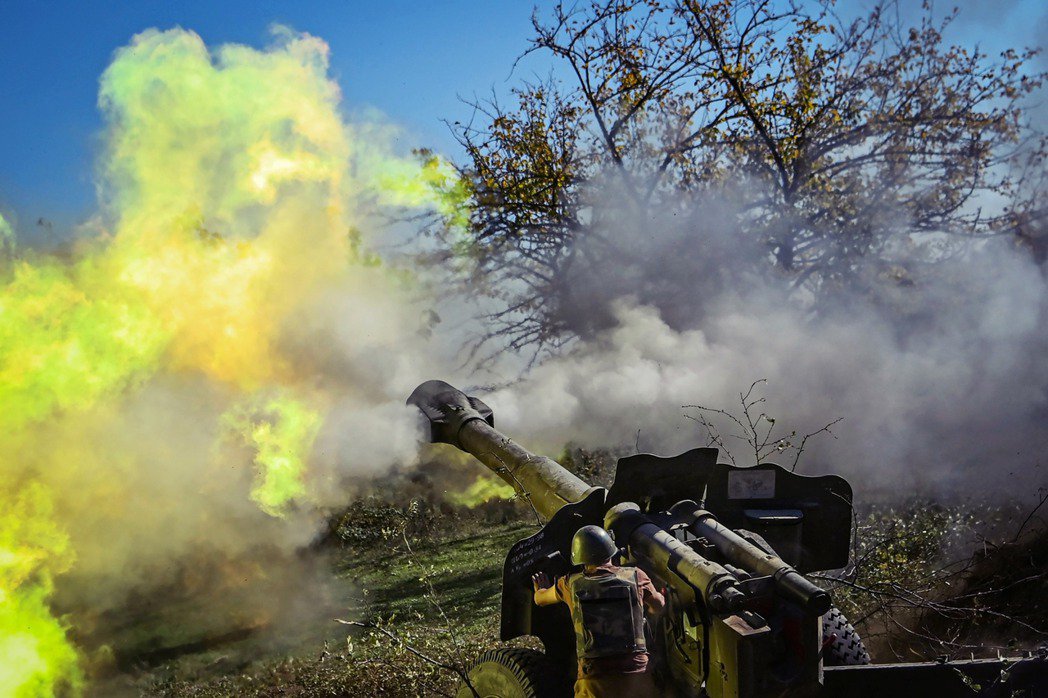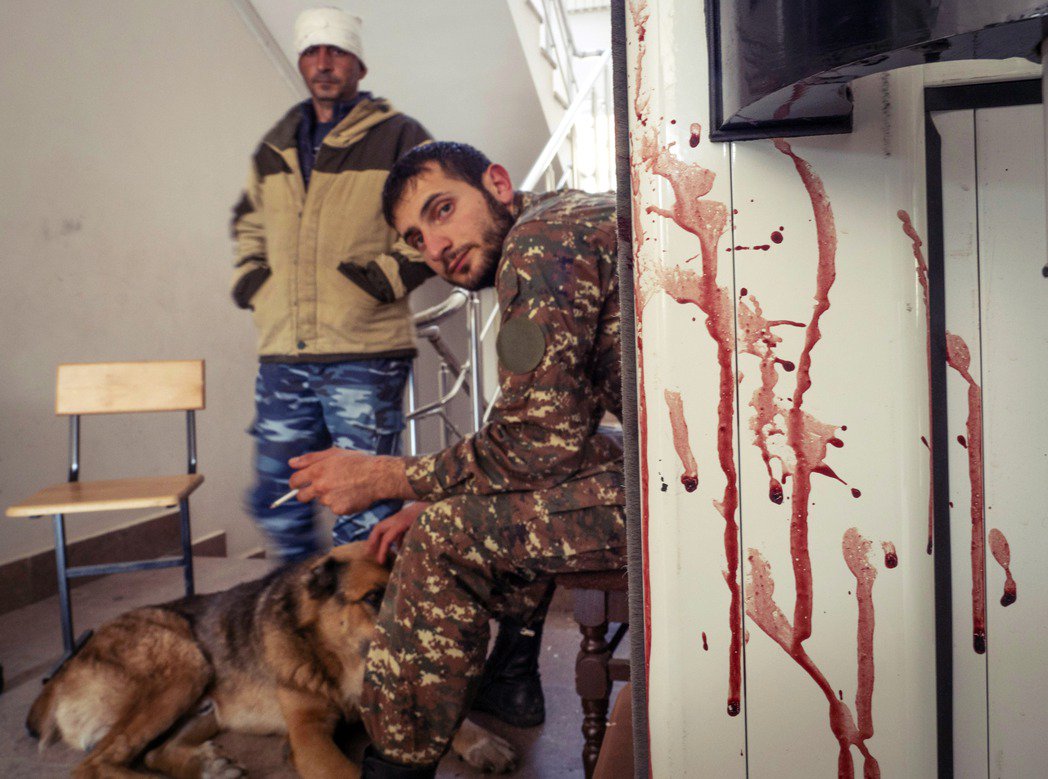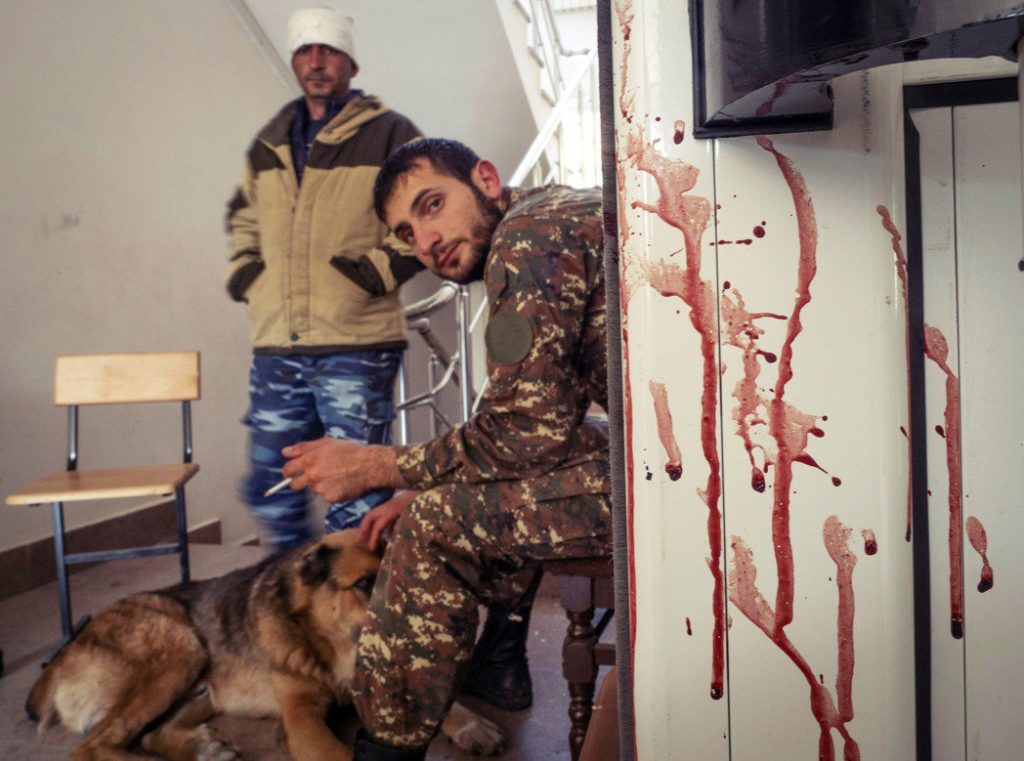
The latest bloody flare-up in the Nagorno-Karabakh conflict came to a tentative end last week, with a decisive victory for Azerbaijan. In 6 short weeks the aggressors have managed to claw back cities and territory had been under de-facto Armenian rule since the fall of the Soviet Union. Huge concessions have been made by the Armenian government, and the independent Artsakh republic has all but been handed over to the Azeris in a Russian brokered peace deal which will have huge consequences for the balance of power in the region.
This year’s war has not been the first instance of violence in this territory.
During the fall of the Soviet Union, when Armenia and Azerbaijan ceased to be secular Soviet republics, the majority Armenian enclave of Nagorno-Karabakh voted in favour of unity with Armenia in a referendum which was boycotted by the Azeri population of the region. Full-scale fighting broke out between these separatists and Azerbaijan, with a separatist victory. The whole of Nagorno-Karabakh subsequently came into Armenian control, along with around 9% of Azerbaijan’s Azeri majority territory.
What had been peaceful multi-ethnic republics in the USSR fell to chaos and ethnic cleansing, with over a million displaced people crossing the borders to their respective “motherlands” – no longer were citizens Soviet first and Azeri or Armenian second, and the socialist framework of ethnic equality was gone. Similar conflicts can be seen anywhere that suffered the fall of socialism – most notably in post-Tito Yugoslavia, where ethnic conflict raged throughout the 1990s, and NATO bombing scarred the landscape.
The peace deal signed by Armenian PM Pashinyan has been met with popular outrage and contempt in Armenia. Civilians took to the streets and raided their parliament building in Yerevan, hospitalising high-ranking parliamentarians and branding Pashinyan a coward and a traitor for conceding a war they could not even conceive of losing. A group of Armenian soldiers took to social media to announce their mutiny, stating that they would not be leaving their positions on the front and urging their countrymen to come from the cities to help hold the territory in spite of the treaty’s ruling.
Pashinyan has attempted to reassure the country that his decision to capitulate was not taken lightly, that the war was a foregone conclusion after the loss of the key town Shushi, and any prolonging of the conflict would lead to nothing more than harsher compromises from the Azeris and more Armenian dead. But this is a hard sell in a nation riled up with ethnic pride, a sense of Christian duty, and the cultural scars of genocide only a century ago.
The geopolitical impact of this peace will be far reaching. The treaty dictates almost all of Armenia’s de facto controlled land in Azerbaijan to be returned over the next few months. There are talks of Azeri control of the entire Armenian border with Iran. Russia will be sending thousands of soldiers to the Armenian held territory as a peacekeeping effort, and Azerbaijan, to Russia’s chagrin, has announced that it will push for a similar force of Turkish soldiers to enter the region as well.
The presence of Turkey’s hand has been glaring in this war. President Erdogan, inching further every day from Ataturk’s pluralistic style of governance and into Islamic despotism, has displayed a desire for expansion not just of Turkish geopolitical influence but also of its borders. In this context, Ankara’s military support for the ethnically Turkic Azeris comes as little surprise. The proto-fascist party MHP, junior partner in the ruling electoral alliance in Turkey’s parliament, has been pushing the ethno-nationalist line of pan-Turkism further into the centre stage of Turkish foreign policy.
What manifested itself in Syria and Libya is now evident in Azerbaijan. Support from Ankara did not come bearing a Turkish flag, but covertly. Scores of Turkish built drones streaked across the sky, cluster bombing Armenian units for showy propaganda reels pasted all over the internet. Fresh from the brutal invasions of Afrin and Serekaniye, Turkey flew in jihadist mercenaries by the thousand to the front line in Nagorno-Karabakh. Though their presence was denied by Turkey and Azerbaijan, the butchers of the Hamza division and Al-Nusra were front and centre in the conflict, imported directly from Syria to fight on another front for extremist Islam. The method of destabilising the Caucasus for Turkish expansionist gain is lifted straight out of Kissinger’s playbook. Turkey is looking to fill the shoes of its NATO allies.

Though this is the fourth ceasefire of this 6 week war, most parties expect it to last. But at the time of writing Yerevan’s streets are lined with protesters calling for Pashinyan’s resignation and the continuation of the war, in defiance of the harsh terms Armenia will be facing. The thousands of lives lost over 20 years for control over Nagorno-Karabakh are still fresh wounds in the minds of Armenians. Abandoned by Russia and loomed over by their old Turkish oppressors, this will not be the last we hear of the Armenian people or the conflict in the region.
Russia has proven itself to be akin to the USA in its view of the Middle East and Causacus. For the major superpowers, there are no longer red blooded allies and enemies; only strategic moments to support smaller nations for their own gain, assets to be deployed and redeployed to fight proxy wars where necessary – opportunities to exploit, nations to destabilise and money to be made. Nothing less can be expected from bourgeois governments.
The communist response should be clear: it is the working class of all ethnicities who bear the brunt of these conflicts. The friendship amongst peoples brought to the region by socialism has been dashed aside by capitalist restoration, and ethnicization is being fostered as a tool in the arsenal of imperialist powers bidding for control. We must oppose them on every front, and meet their division with united struggle, democracy and socialism.
Shea Stewart




